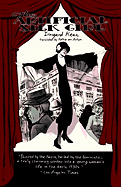
The Artificial Silk Girl depicts a scrappy 19-year-old's pursuit of stardom (or, if that fails, a generously-funded ingénue-dom) in 1930s Germany. With little education and zero resources, Doris must manipulate her natural sexual appetite to survive. A deft deployer of the "sensual look," Doris is also prone to vengeful thievery, but only the most moralistic reader could be totally unsympathetic to her rationalizations. Who could resist the shrewd humor of a young woman who adorns her bra with rusty safety pins to avoid her dates' pawing?
At once a tale of ambition and a sentimental education, The Artificial Silk Girl is also a triptych of moods. The first section's "dear-diary" format recounts the indignities of marginal female employment in the provinces, followed by some episodic romping among vicious theater types in Berlin. The middle achieves a more sustained tone via the jazzy, second-hand descriptions of city life Doris relates to her blind neighbor. ("I unpack my eyes for him," is Keun's version of Isherwood's "I am a camera.")
The ending is a bit thinner, as Keun submits her heroine to a stark education--it's as if the author's narrative skill matures in parallel to her heroine's transformation. Despite its late-Weimar timing, The Artificial Silk Girl is less a novel of national politics than a riff on love and sexual doublethink. For Keun's sardonic take on creeping Nazi politics, see After Midnight, the novel she published in exile. --Holloway McCandless, blogger at Litagogo: A Guide to Free Literary Podcasts

